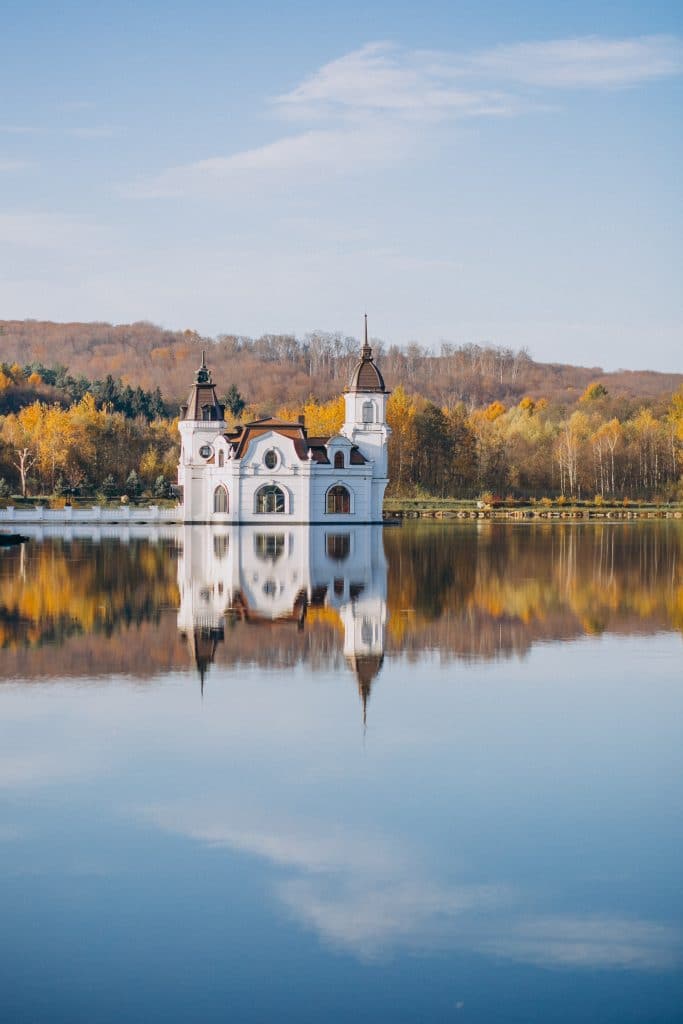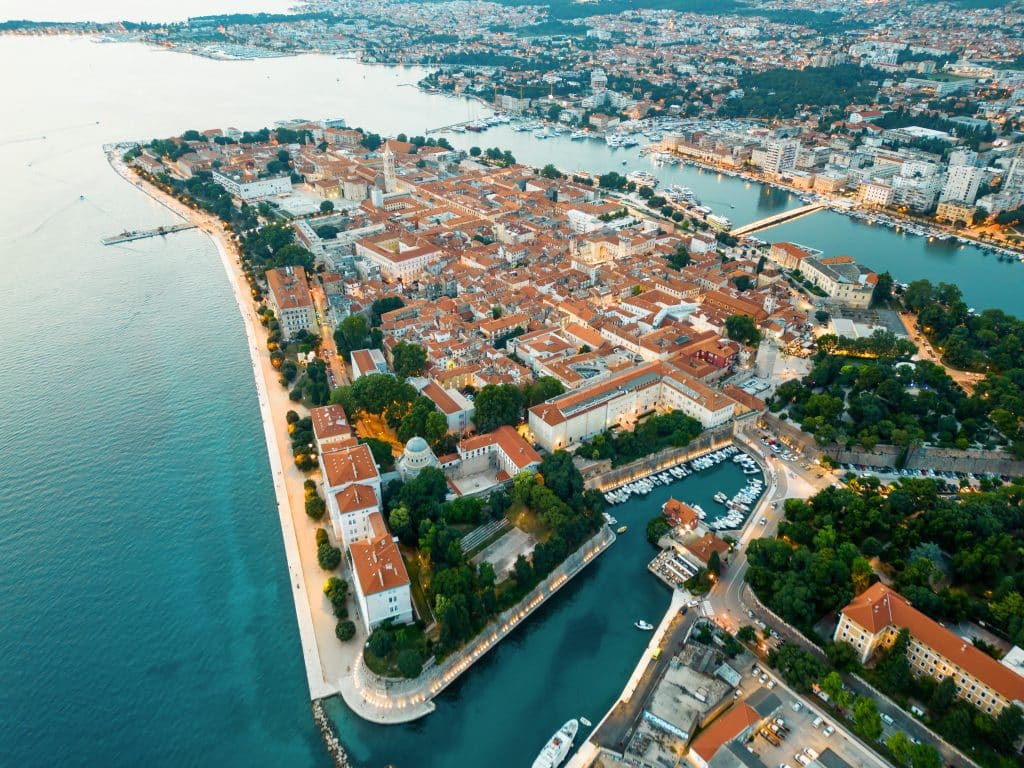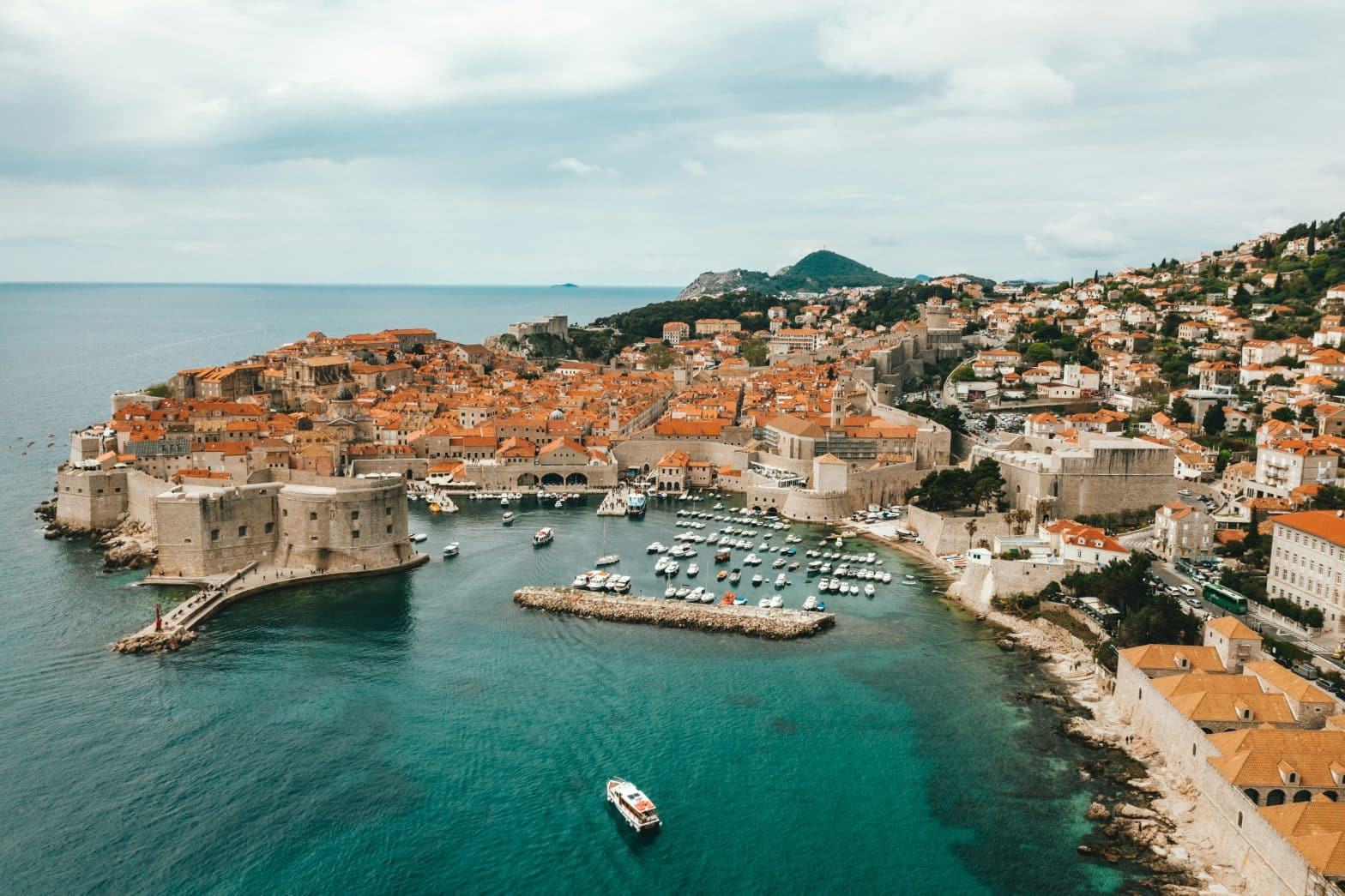Have you fallen in love with Croatia during a business trip or holiday? If you are thinking of moving there, whether to Zagreb, Split, Dubrovnik or Pula, you are probably wondering how much money you will need. This is often the question that comes up most often when planning to move abroad.
To help you get a clearer picture, we have prepared a detailed guide to the cost of living in Croatia. Accommodation, shopping, healthcare, transport, education and leisure activities… find out about the main expenses you can expect!
Overview of the average cost of living in Croatia
A single person living in Croatia needs around €1,350 per month, while a family of four should budget for an average of €3,700 per month.
This includes all major expenses, such as rent, groceries and leisure activities.
| Expenses | Prices |
|---|---|
| Average monthly net salary | €1,450 |
| Rent for a studio apartment in the city centre | €500 to €1,000 per month |
| Purchase price of an apartment per square metre in the city centre | €4,100 on average |
| Petrol (1 litre) | €1.5 |
| Mobile phone plan (calls + 10 GB of data) | €19 |
| Coffee on a terrace | €2.15 |
| Meal for two at a restaurant | €60 |
Official currency in Croatia
On 1 January 2023, Croatia joined the European Monetary Union, making the euro its official currency.
The euro has replaced the kuna, whose banknotes can be exchanged for euros at the Hrvatska narodna banka (Croatian National Bank) without any time limit.
Accommodation
The cost of accommodation in Croatia varies from city to city. Apartments in Dubrovnik and Split are the most expensive in the country.
Here is an overview of average rents in the main Croatian cities, as well as the price per square metre if you wish to buy property:
| Accommodation | Zagreb | Pula | Dubrovnik | Split |
|---|---|---|---|---|
| Studio in the city centre | €750 | €580 | €1,050 | €900 |
| Studio outside the city centre | €580 | €400 | €760 | €620 |
| Three-bedroom apartment in the city centre | €1,300 | €1,000 | €1,500 | €1,600 |
| Three-bedroom apartment on the outskirts | €900 | €780 | €1,100 | €1,100 |
| Purchase price per square metre | €3,000 to €4,700 | €2,600 to €3,300 | €3,500 to €6,000 | €3,500 to €7,000 |
Food prices in Croatia
Groceries are the main expense in Croatia. They account for an average of 28% of expats’ monthly expenses.
To give you an idea, here are the average prices of some basic food items:
| Food item | Average price in Croatia |
|---|---|
| Milk (1 litre) | €1.15 |
| Water (1.5 litres) | €1.17 |
| Bread (500 g) | €1.50 |
| Rice (1 kg) | €2.65 |
| Dozen eggs | €3.25 |
| Local cheese (1 kg) | €11.25 |
| Chicken fillets (1 kg) | €8.90 |
| Meat (1 kg) | €11.15 |
| Potatoes (1 kg) | €1.30 |
| Tomatoes (1 kg) | €2 |
| Onions (1 kg) | €1.30 |
| Apples (1 kg) | €1.60 |
| Bananas (1 kg) | €1.50 |
| Local beer (500 ml bottle) | €1.50 |
| Imported beer (330 ml bottle) | €2 |
Transport in Croatia
Bus:
The bus is the most popular form of public transport in Croatia. The average ticket price is €1.30. Journeys are cheaper if you buy a travel card. In Zagreb, you can buy a monthly travel card for €53.09, which allows unlimited travel on buses and trams.
Taxi:
The starting price for a taxi ride is around €4 on average. Expect to pay €1.25 per kilometre travelled and around €9 per hour of waiting time.
Train:
Train travel is affordable, but journey times are very long. For example, a train ticket between Zagreb and Split costs an average of €15 for a journey of around 8 hours.
Planes:
The national airline, Croatia Airlines, operates domestic flights, particularly between Zagreb, Split, Dubrovnik and Pula. Expect to pay around €80 in August for a flight from Zagreb to Dubrovnik.

Car:
Drivers can of course travel by car, with petrol costing €1.50 per litre.
Please note that parking is almost always paid in Croatia! Allow an average budget of €0.50 to €2 per hour, depending on the region.
Boat:
Ferries are regularly used to reach certain Croatian islands. The price of the trip varies between €50 and €250, depending on the company and destination.
Healthcare in Croatia
| Medical services | Average price in Croatia |
|---|---|
| Consultation with a general practitioner | €20 to €40 |
| Consultation with a specialist | €25 to €70 |
| Teeth cleaning | €35 |
| Ceramic crown | €150 to €200 |
| Cataract surgery | €570 to €2,450 |
The healthcare system in Croatia is based on compulsory universal health insurance, managed by the Croatian Health Insurance Fund (HZZO).
The cost of medical services is covered in full or in part. Some treatments, such as dental and eye care, may not be covered.
This is why the majority of residents, both expatriates and locals, choose to take out supplementary insurance. In Croatia, there are two types of supplementary insurance:
- Public supplementary insurance, such as that offered by the HZZO;
- Private supplementary insurance.
As an expatriate, you can also choose international private health insurance. If you are going to protect yourself and your family, you might as well choose coverage that is truly tailored to your lifestyle.
Such insurance, such as that offered by Foyer Global Health, allows you to:
- Be covered everywhere, whether in Croatia, in your country of origin or anywhere else in the world;
- Access high-quality care at the facility of your choice;
- Benefit from reduced waiting times.
We also offer additional services designed for expatriates, including 24/7 assistance, a second medical opinion via Teladoc Health®, a mental health coach and a personalised fitness programme.
Education
If you are planning to move abroad with your family, here are the budgets you should allow for your children’s schooling:
- Private nursery school: approximately €270 per month
- International primary school: approximately €10,300 per year
- Private secondary school, such as the French School in Zagreb: approximately €7,000 per year
- Private secondary school: around €7,000 per year
Activities and leisure
- Visit Krka National Park: €7 per adult in low season, up to €30 in high season; between £4 and £15 per child.
- Discover the amphitheatre in Pula: £10 per adult, £5 per child.
- See the waterfalls at Plitvice Lakes: between €10 and €23 per adult, and between €6 and €14 per child.
- Go to the cinema: €7 per ticket.
- Join a gym: around €45 per month.
- Dinner for two at a restaurant: on average €60.
- Two beers in a pub: around €7.
- A cappuccino in town: around €2.20.
Cost of living in Croatia compared to the UK
The cost of living in Croatia is around 25% lower than in the cost in the UK. The main differences are in the budget allocated to shopping and rent.
By way of comparison, a three-bedroom apartment in the city centre costs an average of €1,100 in Croatia, compared to €1,400 in the UK.
However, the average salary in the UK remains higher (€2,500 compared to €1,450 in Croatia), as does purchasing power, which is more than 20% higher.
Cost of living in Croatia compared to neighbouring countries
Croatia is one of the most affordable countries in South-Eastern Europe. This is reflected in the Numbeo 2025 ranking of countries by cost of living, from highest to lowest:
- Italy: 51
- Malta: 48
- Greece: 46.5
- Slovenia: 46.2
- Croatia: 43.2
- Albania: 39.9
- Montenegro: 36.3
- Serbia: 35.9

Compared to Slovenia
The cost of living in Croatia is roughly the same as in Slovenia. It is slightly cheaper (around 5%), mainly because rents in Slovenia are generally a little higher.
Average salaries are almost the same, as is purchasing power, although the latter is around 2% higher in Croatia.
Compared to Hungary
The difference in the cost of living is more pronounced when compared to Hungary. While a single person needs around €1,350 per month in Croatia, the same standard of living requires €1,030 in Hungary.
However, the average Croatian salary remains higher: €1,450 compared to €930 in Hungary.
If you are interested in this topic, check out our comprehensive guide to the cost of living in Hungary.
Compared to Italy
The cost of living in Italy is around 15% higher than in Croatia. Life is more expensive across the board, with an even more pronounced difference in northern cities, which are generally more expensive than those in the south.
However, the average salary in Italy is higher, at around €2,700, which contributes to slightly higher purchasing power.
